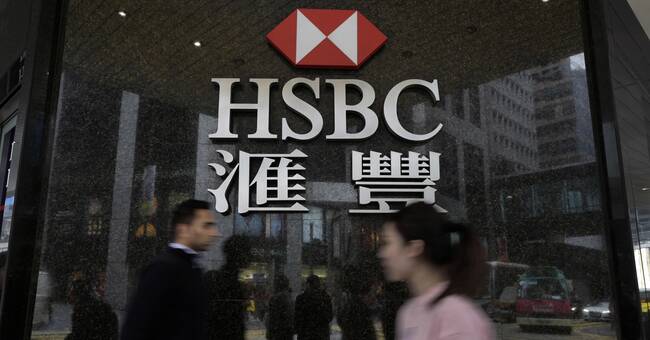Five major international banks have defied government criticism and previous fines for money laundering by continuing to lure suspected illegal multi-billion sums to criminal organizations and shady businesses, the bank leak shows.
JP Morgan, HSBC, Standard Chartered Bank, Deutsche Bank and New York Bank of Mellon, have continued to make money on powerful and dangerous people.
For example, the US largest bank JP Morgan brokered money that is suspected to come from the huge looting of public funds in Malaysia, Venezuela and Ukraine, according to the documents.
Javascript is disabled
Javascript must be turned on to play video
Read more about browser support
The browser is not supported
SVT does not support playback in your browser.
We therefore recommend that you switch to another browser.
Read more about browser support
- People may not know much about money laundering and companies in tax havens, says corruption expert Jodi Vittori.
Photo: ICIJ / AP / TT
Prosecutor: The system "largely toothless"
Although the banks are punished financially, not much happens.
- By completely failing to prevent large-scale corrupt transactions, financial institutions have given up their role as the first line of defense against money laundering, says Paul Pelletier, former economic crime prosecutor in the United States.
The banks know that they operate in a system that is "largely toothless", he believes.
In 2012, Europe's largest bank, HSBC, admitted that it had laundered billions of dollars in Latin American drug cartels.
But the leak shows that the bank then laundered money to Russian suspected money launderers and an international pyramid scheme.
"Everyone does bad things"
US financial police The fin has 300 employees and received 2 million suspicion reports last year.
Authorities detect less than one percent of the world's money laundering, estimates the UN agency UNODC.
- Everyone does bad things, says David Lewis, head of the intergovernmental organization FATF, which works against money laundering.
Many countries seem more interested in making their work look good on paper than cracking down on money laundering, according to Lewis.
Several banks have been fined billions.
That is not enough, several experts believe.
One of them is James S Henry, who has been researching economic crime since the 1970s.
- We must demand responsibility from some senior managers.
And that means a fine or imprisonment, he says.
The major banks admit previous shortcomings but refer to secrecy.
They say they have improved and follow the rules.
Fincen condemns the leak but does not comment on the content.
Javascript is disabled
Javascript must be turned on to play video
Read more about browser support
The browser is not supported
SVT does not support playback in your browser.
We therefore recommend that you switch to another browser.
Read more about browser support
Louise Brown says that the money that is laundered often travels in many stages, before it can be paid out as a "pure" dividend or salary.
Photo: SVT

